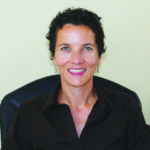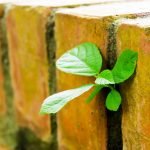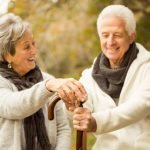Alexia Georgousis, ND, BPE
It takes a particular kind of person to enter the field of naturopathic medicine. What attracts us to this profession is as varied as the people within it. However, I believe that we share some common traits. We are givers and fixers, problem solvers, teachers, and researchers. We study, we strive, we fail, we thrive, we persevere, and we often take on too much. We also tend to be hard on ourselves. As individuals, do we really listen to what we teach our patients? I believe that, for the most part, we do. But what happens when we go through trying times and struggle or when we feel overwhelmed? Are we able to be compassionate with ourselves and each other? Or do we silently judge and feel ashamed of our failure to uphold the image of the ND? After all, we preach holistic balance and harmony; we know how to integrate all the parts of ourselves, so how can we possibly allow ourselves to fail? Compassion fatigue is nothing new in allopathic healthcare, and despite our naturopathic philosophy, this syndrome likely exists in our profession as well. The question is why are we allowing it to happen to ourselves, when we are the leading advocates of holistic healthcare?
Three Shifts in Awareness
For us to be authentic leaders in our profession, 3 shifts in awareness need to occur. First, self-care must become a priority in our naturopathic colleges and our professional organizations. Second, as individuals, we need to become more aware of our judgments toward ourselves and others. Third, we as a collective must explore and redefine the meaning of success. As NDs, only then can we state that we walk our talk.
It is easy to be a workaholic in our profession. It is easy for many of us to drive ourselves into such a state of exhaustion that we lose track of why we chose this career. We forget to apply our principles to ourselves. Although we realize that we are creating an unhealthy state, we cannot seem to stop. We like to be busy, we enjoy being challenged, and who can deny the wonderful feeling of joy in helping someone succeed? It is often not until we ourselves get sick, usually quite seriously, that we stop and reflect. This dilemma prompts many questions: Why is it that we are not taught to prioritize self-care when we teach others to do so? What is this block that we carry about the expectations of ourselves? Why do we need to push ourselves to the point of needing a leave of absence? Why do we carry such judgment toward fellow colleagues who struggle with practice building or with health challenges?
I have known many colleagues and students who have felt incredibly ashamed to admit that they have been struggling emotionally, physically, or financially. Like our patients, we experience times when we are vulnerable, yet I believe that subtle but pervasive denial to acknowledge this vulnerability exists. Even worse are the false beliefs that if we do struggle it means that we have failed or if we are affected by personal illness then somehow we are to blame. Recently, a colleague shared a conversation he had had with an associate several years ago that captures this subtle judgment to which I am referring. The conversation was about an ND who had died of a chronic illness. The associate had said, “But she was a naturopath. How could she let herself go so much?” My colleague had thought to himself, “You are a naturopath. How could you judge so much?”
I have spoken with other colleagues who have told me they have felt like failures because they have not “succeeded” in practice the way they had expected. Sadly, many carry this sentiment deep inside themselves, afraid to share it for fear of being judged. What they do not see is that their idea of success is narrowly based on their practice alone. Some do not seem to value the influence that extenuating life events can have on developing and growing a practice. This is not to give excuses but rather to simply acknowledge. Identifying a feeling is not the same as dwelling in a feeling, but we forget this truth. Think of those colleagues who practice in unregulated states and provinces, which is a huge challenge for many. Other NDs have had a sudden family loss, illness, divorce, or separation. What about those with children? Consider also the new graduates who have moved far away from friends and family, without any financial or emotional support.
Remember Who We Are
Ultimately, we must remember who we are as a profession and the principles we represent. If we do not provide our students and physicians with the support and tools needed to deal with the difficult times, then we are not being authentic leaders in holistic healthcare. Instead, we are neglecting our naturopathic community and, in doing so, are forgetting the meaning of “physician, heal thyself.”
 Alexia Georgousis, ND, BPE has been practicing in Toronto, Ontario, Canada, since 1999. She is also a clinical supervisor and lecturer at Canadian College of Naturopathic Medicine (Toronto), where in 2008 she received the “Excellence in Clinical Teaching” award. Dr Georgousis approaches her practice and her life with the attitude that “simple is better.” She is currently creating a peer mentorship program for the ND community, which will include personal and business support for its members.
Alexia Georgousis, ND, BPE has been practicing in Toronto, Ontario, Canada, since 1999. She is also a clinical supervisor and lecturer at Canadian College of Naturopathic Medicine (Toronto), where in 2008 she received the “Excellence in Clinical Teaching” award. Dr Georgousis approaches her practice and her life with the attitude that “simple is better.” She is currently creating a peer mentorship program for the ND community, which will include personal and business support for its members.





